Tooling Design & Engineering Support
GPMFG provides complete mold support for micro to large-scale production, including 2D and 3D design for optimal manufacturing, and a range of single/multi-component molds.
- Products/Parts Analysis
- Mold Flow Analysis
- DFM & Tooling/Molds design
- Publish In-house 2D product drawing with Tolerance
- Publish SOP,SIP,BOM
- Check & accept Tooling/Molds & fixtures
- Trial production & make samples
- Test Products
Design Assistance
GPMFG boasts excellent mold design proficiency, employing a comprehensive and mature design process encompassing part analysis (DFM), mold flow analysis, structural analysis, and process analysis. Utilizing software such as Unigraphics, Pro-E, and CAD enhances our design precision.
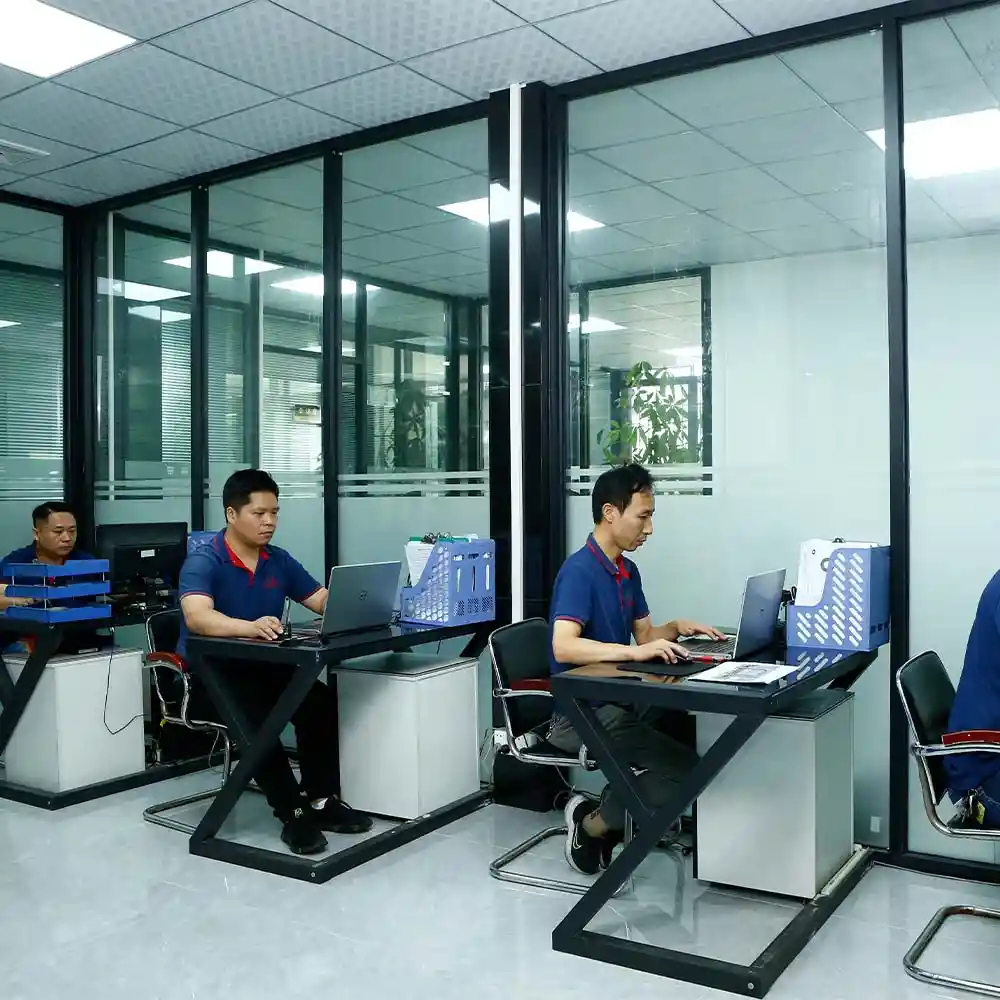
Engineer Team
Experienced Mold Designers
Expertise in Manufacturing Molding
Advanced CAD/CAM/CAE Proficiency
Comprehensive Engineering Support
End-to-End Production Excellence

Products Analysis
Early Stage Engineering Support
Quality Requirement Planning
Material Selection Consultation
Mold Concept Planning
Part optimizing
Design For manufacturing
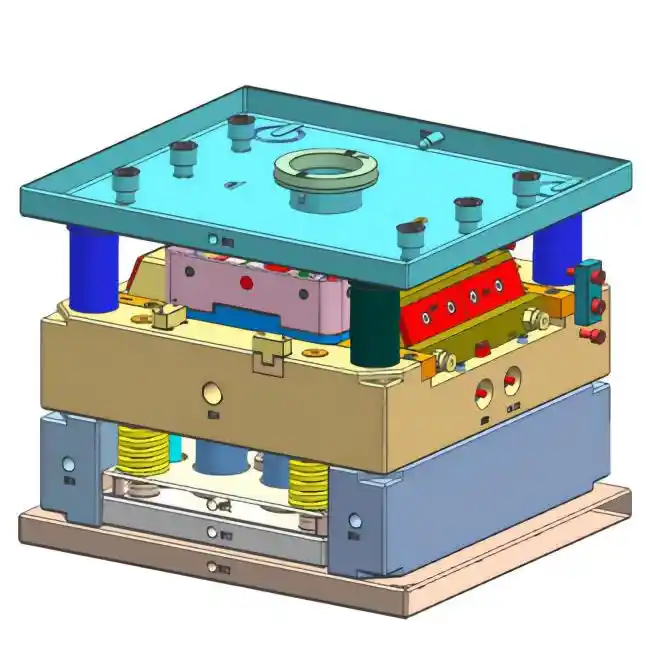
Mold Design Support
Mold drawing 2D
Mold drawing 3D
Design for Manufacturable
Mold design checked
Mold Design Specification
Mold design optimized
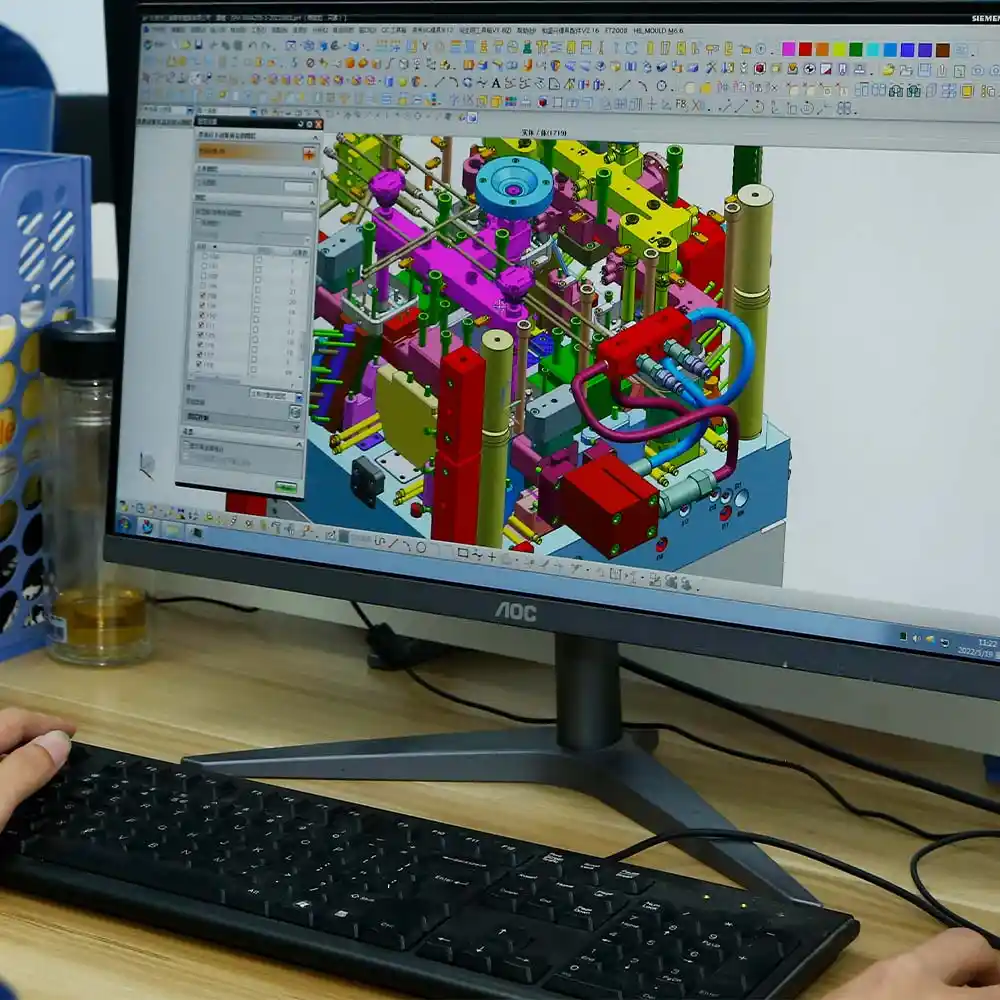
Engineer Software
Auto CAD
Unigraphics NX
Pro-Engineer
Autodesk Moldflow
Solidworks
PowerMilll
Design For Manufacturability (DFM)
GPMFG offers you a valuable tool, Design for Manufacturing (DFM), to cut down on tooling expenses and expedite the manufacturing process. This essential step involves factoring in manufacturing considerations during the design phase, pinpointing and resolving potential issues.
Basic Information
- Cavities
- Using Material
- Shrinkage
- Part size & weight analysis
- Mold steels
- Moldbase steel and spec
- Injection machine size
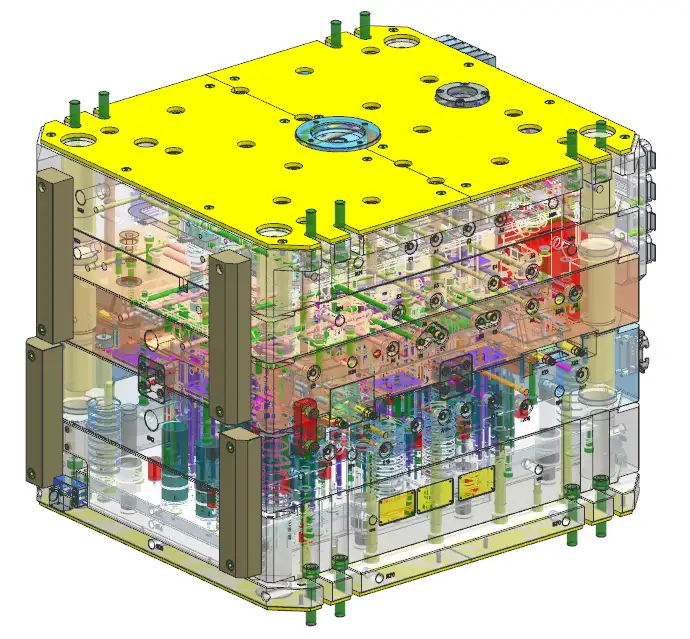
- Sink mark analysis
- Draft analysis
- Engraving and Aspect spec
- parting line analysis
- Insert line analysis
- Slide and retractor lines
- Ejector line
- Gate location and size
- Layout
Mold structure

Mold Flow Analysis For Mold & Tooling Design
Mold flow analysis, a computer-aided engineering (CAE) tool, allows you to simulate molten plastic behavior during injection molding. This aids in optimizing mold design, preventing issues like warpage, shrinkage, and short shots.
Our Mold Flow Analysis offers crucial data on injection molding stages (filling, holding, and cooling). Anticipating potential problems before mold construction empowers you to make informed decisions about mold and tooling design.
Benefits of Mold Flow Analysis include reduced development time, enhanced product quality, increased productivity, and cost reduction. By optimizing pre-production mold and tooling designs, it helps you steer clear of expensive and time-consuming rework or modifications.
Mold manufacturing design process

Part Design: Begin by designing the part you want to mold, considering its shape, size, and material. Ensure manufacturability, avoiding overly small or complex features that may pose molding challenges.
Mold Design: After finalizing the part design, create a 3D model for the mold cavity and core. Consider factors like molten plastic flow, part cooling, and ejection from the mold.
Mold Manufacturing: Once the 3D CAD design is ready, manufacture the mold using materials like steel or aluminum. Utilize various processes such as CNC machining, EDM, and casting.
Mold Testing: Thoroughly test the manufactured mold to confirm proper functionality, assessing molten plastic flow, part cooling, and successful ejection.
Production: Upon successful testing and approval of the mold, commence production. The output rate per hour depends on part size and complexity, as well as the capabilities of the injection molding machine.
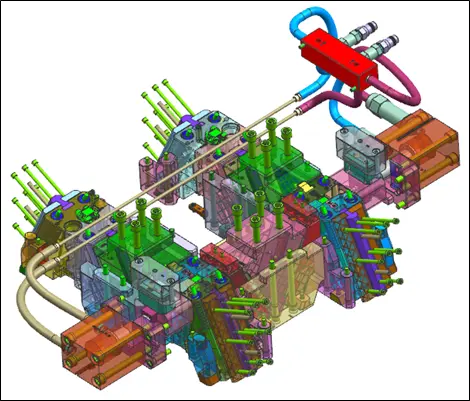
Some additional considerations that need to be taken into account during the mould design process:
Mold Steel Selection: Your choice of materials significantly impacts the strength, durability, and overall cost of the mold.
Parting Line: Deliberate on the parting line’s location, where the mold halves meet; it plays a crucial role in the smooth ejection of molded parts.
Draft: Ensure the application of proper draft angles to the walls of the molded part for easy ejection from the mold.
Cooling System: The efficiency of the cooling system directly influences the cycle time of the injection molding process.
Cost: Factor in the mold cost, as it directly contributes to the overall expenses of the injection molding process.

